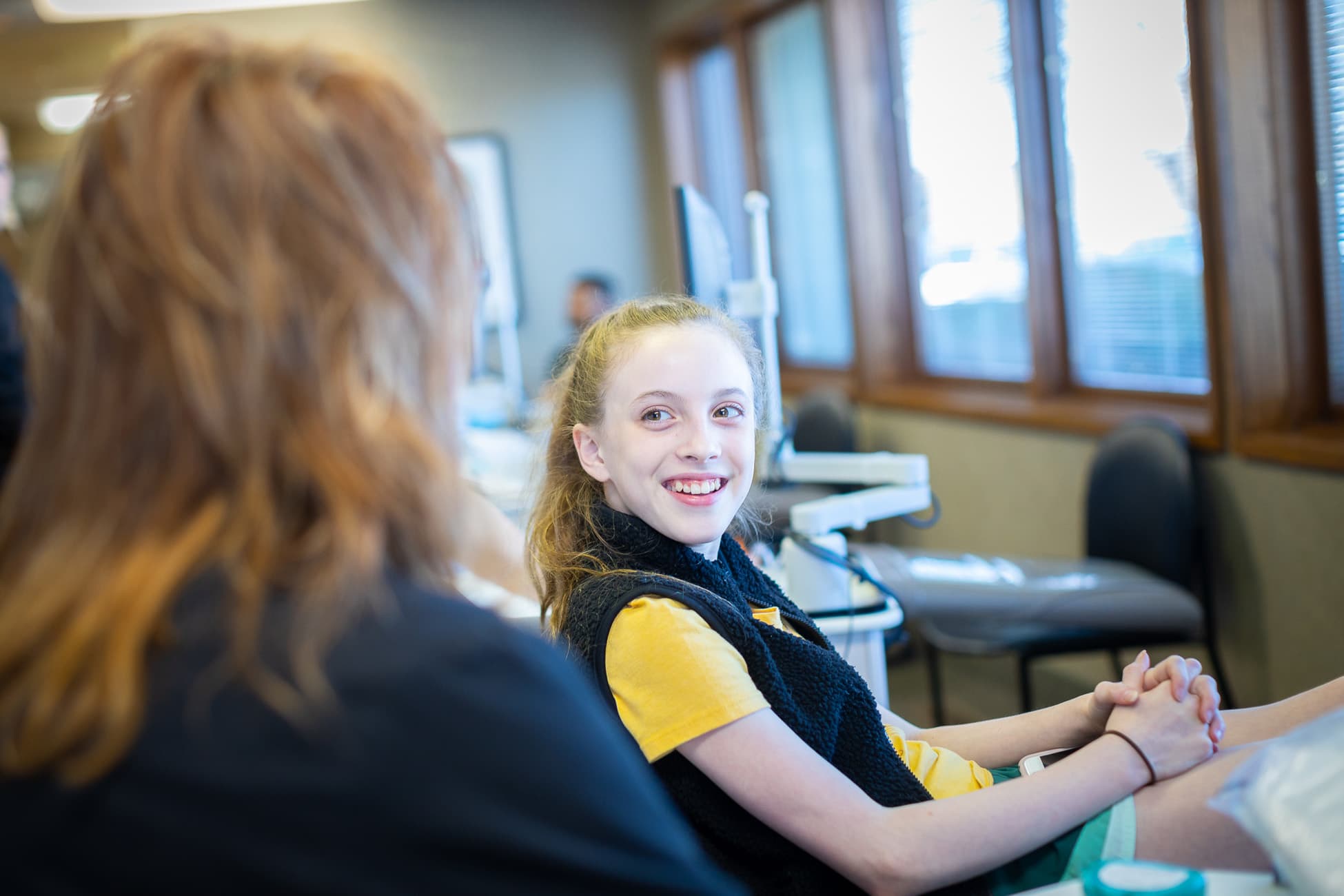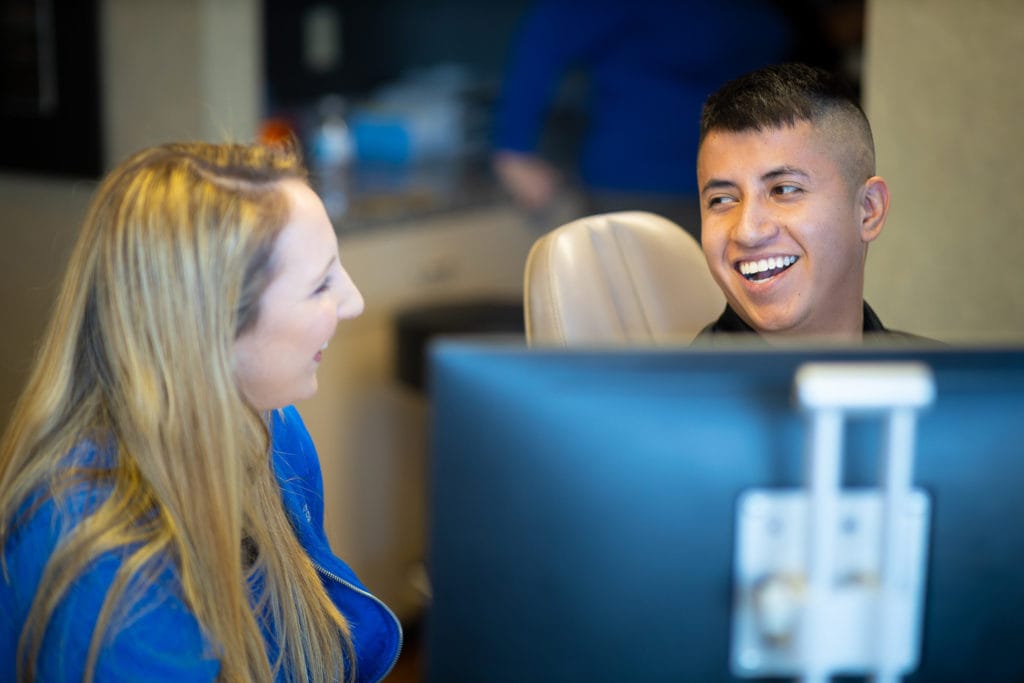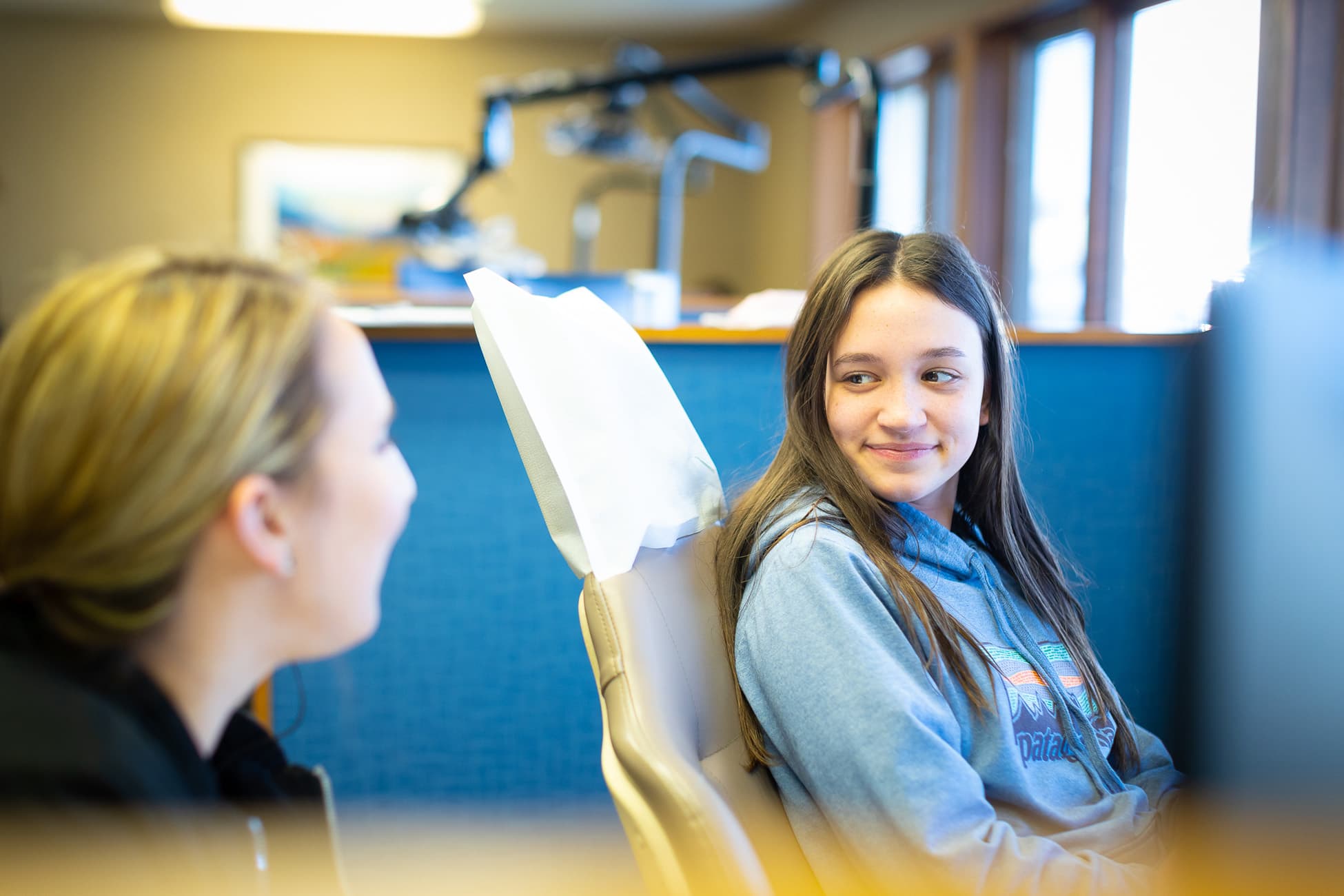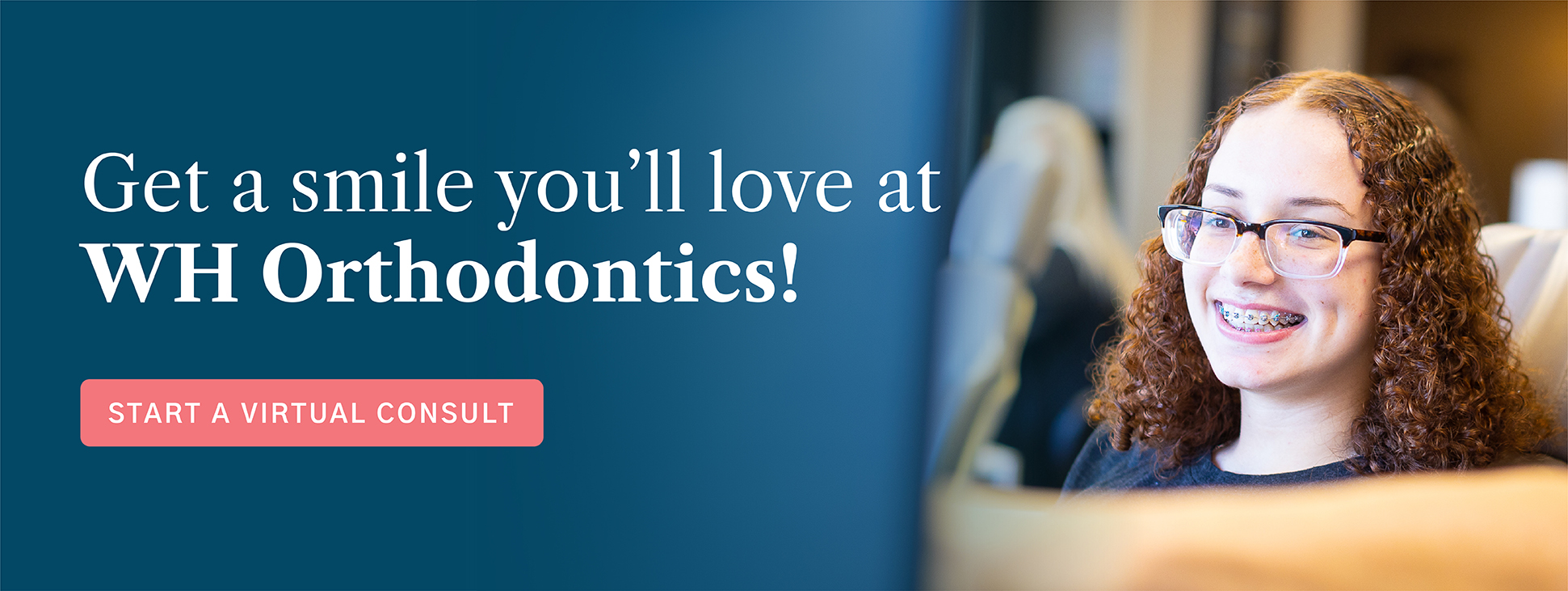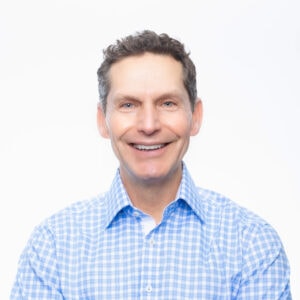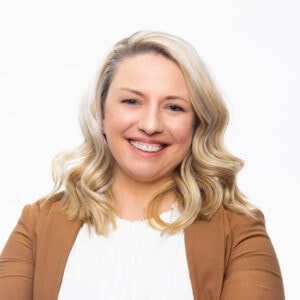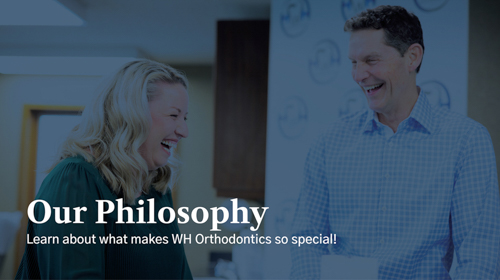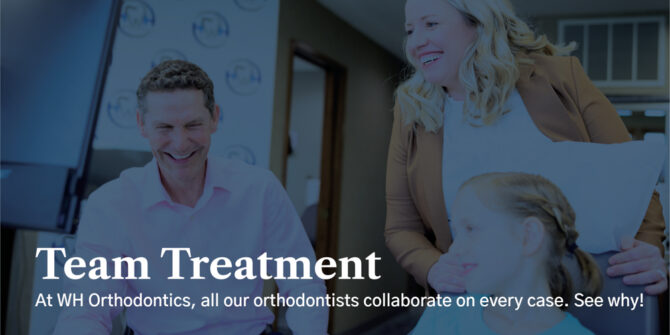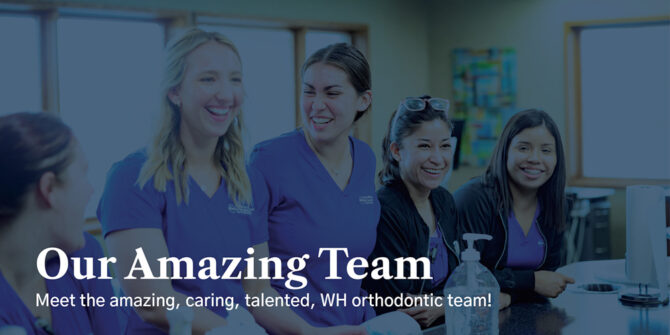We all know how important it is to brush and floss your teeth regularly. It’s the best way to keep your teeth healthy and strong. You’ve probably heard that it’s best to brush and floss after every meal, but is that true?
Should you brush your teeth after every meal? You may be surprised at the answer: Not necessarily.
Wilson and Hendrickson Orthodontics encourages its patients to brush and floss regularly. But we know that timing is everything when it comes to your oral health. In some cases, it’s better to wait for a while after meals before brushing your teeth. However, there are ways you can still protect your teeth right after meals, even without brushing.
Brushing After Eating
Brushing and flossing your teeth removes plaque and food particles. Dental plaque has bacteria that can eat away at the minerals in your enamel, the hard outer shell of your tooth that protects the living tissue inside. If plaque isn’t removed from the teeth, it can cause tooth decay.
That’s when the bacteria eats away at the enamel until it creates a hole, better known as a cavity. Left untreated, the cavity can penetrate the living tissue and cause pain, infection, and tooth loss. Plaque can also irritate the gums and lead to gum disease such as gingivitis.
The best way to remove this plaque is by brushing and flossing. You should brush your teeth at least twice a day and floss your teeth at least once a day. Flossing first moves the plaque and food particles out to the surface of your tooth, where brushing can remove it. We recommend brushing early in the morning to remove plaque and bacteria that have built up overnight and brushing right before bed to remove plaque and bacteria from the day’s meals.
Why You Shouldn’t Brush Right After Eating
If brushing is so beneficial, why shouldn’t you brush after every meal? It’s OK to brush, but brushing immediately after eating may do more harm than good! Certain foods contain acids that attack your enamel, from citrus fruits to sodas (yes, sodas!). These acids make your enamel vulnerable.
Your toothbrush and toothpaste contain abrasives that scrub off the bacteria and plaque, but those abrasives can be damaging to tooth enamel weakened by acids from your food and drink. Your teeth are at their most vulnerable right after eating and drinking. That means that instead of protecting your teeth, you could actually do some damage. That’s why we say don’t brush your teeth after eating acidic foods.
How Long After Eating Should You Brush Your Teeth?
Is it bad to brush your teeth after eating? Not necessarily. As we said before, timing is everything. You can brush your teeth after meals, but it’s best to wait a while for your enamel’s biggest defender to do its job. That would be your saliva!
Your saliva washes away the acids that damage your enamel and neutralize some of the acids and bacteria so they can’t harm your teeth. Your saliva also creates a chemical reaction with fluoride in your toothpaste that allows it to absorb into the enamel and protect your teeth better.
It takes about half an hour for saliva to reach its maximum chemical reaction level, so waiting 30 minutes before you brush is best for your teeth. Likewise, waiting half an hour AFTER you brush gives your saliva and the fluoride time to provide maximum protection for your teeth.
How Can I Help My Teeth Before I Brush?
There is one thing you can do right after meals to help your teeth, and it’s incredibly simple. Drink water. Yes, that’s it! Like your saliva, water rinses bacteria and acids off your teeth, which keeps them from damaging your enamel. The more saliva you produce, the better it protects your teeth.
Water also helps. It washes the acids off your teeth before they have a chance to react with your enamel. Water also rinses off leftover food particles. Water can reach around your braces brackets to get out food particles you may not even realize are there.
All of this reduces the amount of plaque that builds up on your teeth. In addition, most tap water is fluoridated, meaning fluoride is added to protect your teeth. This gives your teeth a little added boost of protection.
So if you want to protect your teeth after eating, grab a glass of water.
How Can I Protect My Teeth?
Brushing your teeth is still incredibly important to protect your teeth. We recommend you brush your teeth every morning after you get up to get rid of the bacteria that’s built up in your mouth while you slept. This is also a good time to floss first before brushing.
It’s OK to floss your teeth just once a day with a good dental floss, but if you want a bit of extra protection, you can use a water flosser later in the day to keep the area between your teeth and around your gums cleaner.
What is the best way to brush? Find a good fluoride toothpaste (most have fluoride) and brush for at least two minutes at a time, making sure you brush every surface of every tooth and your gums.
Don’t stop there! Brush the roof of your mouth and your tongue, too. Plaque builds up on those, as well. Spit out the excess toothpaste. If you must rinse, use a small amount of water and rinse lightly. The idea is to keep as much fluoride on your teeth as possible.
After that, don’t eat or drink anything for at least half an hour. Give that fluoride and saliva time to work and protect your teeth! After that, you can use a fluoride mouthwash for extra protection.
Better still, spend the day drinking water. Not only is it healthier for your teeth than coffee or sodas, but it’s also healthier for the rest of your body.
Brush your teeth again before bed, making sure you get every surface once again. You want your teeth as clean as possible. Bacteria will build up on your teeth while you sleep, but the less is there already, the less you’ll have on your teeth the next morning.
Better Brushing With Braces in Topeka, KS
Brushing and flossing are essential to healthy teeth and gums, with or without braces. As orthodontists, we know it can seem challenging at first to brush your teeth thoroughly. A proper soft-bristled, electric toothbrush can scrub away the bacteria and plaque that can build up on your braces and teeth. As without braces, drinking water can rinse away what your toothbrush doesn’t reach.
Wilson and Hendrickson Orthodontics monitors your teeth with every office visit and lets you know if your oral hygiene habits are good or need a bit more work. We’re always here to offer tips and suggestions for good oral hygiene both during and after braces treatment or treatment with Invisalign. Schedule an appointment with us if you’d like to learn more!

